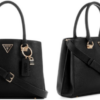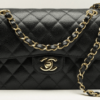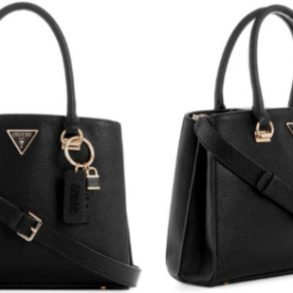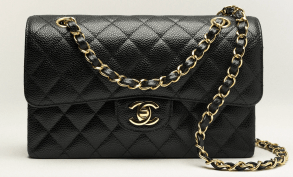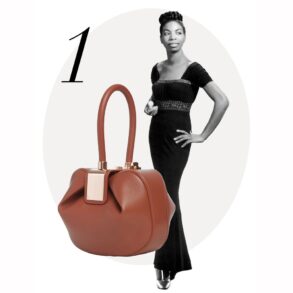Cosette made headlines this fall after it was cleared of upwards of 1,000 complaints lodged by consumers who accused the Australian resale company of offering up counterfeit bags under the guise that they were authenticated luxury goods. Taking on the cases that alleged that Cosette breached Australian Consumer Law as a result of its sale of “superfake” handbags from Gucci and Saint Laurent, among other brands, the Civil and Administrative Tribunal of New South Wales and its Appeal Board sided with Cosette and an Australian marketplace regulator similarly weighed in favor of Cosette following a lengthy probe into the company.
A Bit of Background: Cosette came under fire last year after a slew of consumers alleged that it had sold them counterfeit handbags. Based on authentications from third-party services, which claimed that the handbags that consumers acquired from Cosette, were fake, consumers filed suit against Cosette. At the same time, consumer protection agency NSW Fair Trading launched a year-long probe into Cosette and its offerings, ultimately finding “no evidence to support allegations the designer handbags sold by Cosette are fake.”
In its defense, Cosette had argued that the handbags at issue were authentic and that the plaintiffs’ reliance on authentications from third-party service providers was improper.
The Issue of Authentication
Amid enduring growth for the $40 billion-plus resale market and the onslaught of companies that claim to be able to authenticate pre-owned luxury products (whether it be resale companies or third-party service providers), one particularly contentious matter for brands is who can (and cannot) be reasonably relied upon to authenticate products – and who can market themselves as such. In a string of legal clashes to date, brands have argued that resellers’ authentication-focused warranties are inappropriate, with Chanel, for example, arguing in more than one case that only it can guarantee the authenticity of its offerings.
Against this background, a particularly notable aspect of the since-decided cases against Cosette is the issue of product authentication and in particular, the role that third-party service providers’ determinations play. After all, in a number of the cases, the Appeal Panel for the Civil and Administrative Tribunal New South Wales dove into the sufficiency of the evidence that the consumer plaintiffs provided to show that the bags that they purchased from Cosette were, in fact, fake. In Cosette v. Ho, for instance, the Appeal Panel found that plaintiff Yi Feng Percival Ho’s evidence in support of her case against Cosette – which included authenticity certificates issued by third-party authentication companies – was insufficient.
Cosette successfully argued that these certificates were not a reliable measure of authenticity, pointing to the following language from authenticators LegitGrails’ and Luxury Authentication Australia Pty (“LAA”)’s terms …
> “We work independently from luxury brands and our authentication services are opinions from our experts. Such opinions should not be treated as legal documentation in any way.”
> “We do not warrant that the results that may be obtained from use of the service will be accurate or reliable.”
> “Save for using all reasonable care and due diligence to provide any service offered by LAA, LAA does not warrant or insure the reliability or accuracy for the outcome of the order or service.”
In addition to finding that the foregoing language weighed against the legitimacy of their authentication determinations, the Appeal Panel also held that LegitGrails’ and LAA’s authentications of the bags was not probative evidence given that: (1) the authentication documentation at issue was “given by a corporation and not an individual,” (2) the documentation “expressly stated that [it] could not be relied on,” and (3) at least one of the certificates was issued by an “intermediary authenticator” who “merely adopted” the findings of an unidentified subcontractor.

The Takeaway: The Appeal Panel stated that authentication certifications – whether from resellers or third-party authentication companies – that fail to identify a specific author/authenticator; the authenticator’s qualifications or experience; and the factual foundation and the “reasons or process of reasoning” for the opinion expressed in the certification will be deemed to have “little weight” from an evidentiary perspective.
Expert Opinion vs. AI
Deciding a separate (but similar) counterfeiting-centric case waged against Cosette (Yang v. Cosette), the Administrative Tribunal was unpersuaded by the two certificates of authenticity that the plaintiff used to try to prove that the handbag she bought from Cosette was not authentic. In that case, the Tribunal set the stage by stating that “opinions in legal proceedings may only be given by those having specialized knowledge based on the person’s training, study or experience and their opinion must be wholly or substantially based on that knowledge.” The Tribunal found that such knowledge was lacking with regard to a report provided by luxury authenticator Entrupy, stating that “it appears that … the opinion is the result of artificial intelligence based on Entrupy’s algorithms.”
The Appeal Panel cited this language from the Tribunal in a subsequently-decided case filed against Cosette (Cosette v. Pennisi), in which the Appeal Panel held that the third-party authentication reports provided by Ruby Pennisi lacked credibility, in part, because the reports did not identify the authors or their qualifications, but also because they offer robust reasoning for their conclusions about the inauthenticity of the bag at issue.
In a statement about the outcome of the cases waged against it, Cosette addressed the third-party authentications relied upon by the plaintiffs, asserting that the reports came with “no evidence of the specific qualifications, skills, or knowledge” of the third-party authenticators. At the same time, it asserted that these authentication companies “do not warrant … the quality of any [of their] services,” nor are they recognized by the luxury brands whose produces they purport to authenticate.
NSW Fair Trading also addressed the issue of authentication in a statement following its probe into Cosette, which saw it collaborate with the brands, themselves, to determine the authenticity of the handbags sold by Cosette. The regulator said that its investigation “highlights the significant issues with the accuracy and reliability of online authenticators, which use AI and algorithms to provide authentications.” NSW Fair Trading cautioned that “consumers should be aware of the limitations of using some online authenticators,” noting that “each item was tested and verified as authentic by the brand. In some instances, the luxury brand confirmed the authenticity of handbags that multiple online authenticators had advised customers were fake.”
This post was originally published on this site be sure to check out more of their content.

